Freemium vs. Premium: Best and Worst Games in the App Store!


We do enjoy the games at iPhone Life. What's not to love about having something like a kabillion titles to choose from?! So, we decided to run a series amongst the gamers here that highlight our favorites over the years (some of us been swiping, tapping, or joysticking since the 1970s), and expound a bit on our opinions about freemium, downloadable content (DLC), and regular old-school purchase models. Siva Om has regularly covered this area (and does a superb job) in his column, but the other iPhone Life gamers thought maybe we would each throw in our two cents as well. Here is mine...
Whether we like it or not, the game market is and has been steadily changing. Consider this recent article in Mashable painting a financially rosy picture for freemium games particularly—90 percent of revenue-generating games in 2013 were free with in-app purchases (IAPs). That is compared to just 8 percent for paid games, and just 2 percent for paid with IAPs. One might look at that and say it is great thing for the consumer. Plenty of free stuff for everyone, right? Well, maybe…. The upshot of having this grandly inclusive, free and expanded gaming marketplace is that you get a sea of mediocre clones, with only a few shining gems.
In the panoply of choice, we are drowning in frivolous and now obnoxious marketing techniques (like banner ads to purchase consumables popping full screen even in game titles you paid for). When a game is successful, the developer may have the luxury of time for improving the game, or even creating a new one without a lot of gouging behavior; but in my opinion, the model is self-fulfilling. There is a growing perception among many gamers that the invasive employment of ads is becoming more prevalent and the urge to make more money on the shrinking margins is too enticing for many developers not to succumb in some way. Piracy is the culprit most often blamed by developers; but in my opinion, this is also being used as an excuse.
So to guide our readers through the veritable sea of freemium games we now face, I am offering some of my own choice games (free or otherwise) that represent the best and not-so-much titles I have enjoyed over the years. I took the time to research and replay most of them—I've probably reviewed most of these games at one time or another, so now is also my chance to right any wrongs, and share some of my best and worst iOS picks from over the years. Below is a quick rating key, and at the end I share some overall game-buying tips I have used to find great games.
Game Rating Key:
Great: The game has few IAPS or consumables, and/or offers a full game unlock to a great game for a reasonable price. If IAPs exist, they are not in your face.
Good: There are a few IAPs or consumables that get in the way of a good game, but game advancement is not dependent on them.
Tolerable: There are more IAPs or consumables bugging you, but still the game is still playable even if it would be better without them.
Annoying: Game unlock is not available, and/or IAPs are practically required to do anything beyond the intro levels. Offers online mode only, with timer features blocking access that would allow you to grind for currency or gain enough experience points to level up (XPs).
The Great Games:
Great games (freemium or otherwise) offer high quality gameplay in all areas; are not designed to extract money from you at every turn; and get steady and responsive care, bug fixes, and updates from developers when needed. They are worth the money even when you buy additional consumables.
Sky Gamblers ($4.99)
Sky Gamblers is the standard for flying combat games and offers superb graphics, realistic controls, and a monster assortment of aerial combat platforms to choose from. This game is a major accomplishment, and well worth the $4.99 price. Like other "great" category games it has few IAPs to bother with.
This game has morphed into a free game with IAPs, but is still well worth grabbing, in my opinion. For overall 3D space-shooting, strategy, playability, and graphics, it is excellent. The game started as a standard purchase app with zero IAPs, but has recently migrated toward buying DLC, and consumables to add interest and keep the levels going. I have to give it a special "great" rating (and I was one of the suckers who bought the original game), because there is absolutely no reason to buy anything to enjoy this game for hours and hours; and the graphics are gorgeous. If you are looking for more strategy, FishLabs has added free-to-play GOF - Alliances to tickle your fancy.
The Good Games:
Good games have the same hallmarks of great games, but they may have lapsed into obscurity without recent updates, have a somewhat high price tag, or are otherwise flawed enough to get a slight markdown. They are still quality games, and of solid value.
The Tolerable Games:
Tolerable games have some of the hallmarks of a good game (graphics, action, or engaging play) but start to stray over into greedville with tactics that push you further toward purchasing up and they may lack good care and feeding from developers. They are still enjoyable..for awhile..
Annoying Games:
Annoying games, in my book, combine the elements of greed and poor game development and stewardship. They often start well, and suck in a large number of active players, only to be abandoned or poorly managed on the back end. They are not "bad" games, necessarily, but they are definitely guilty of bad behavior.
Never get a bad game again
Okay, I can't really promise that. The example list I provided above is just that, and I know some gamers that would go crazy for some of the titles that I marked as tolerable or even annoying. These picks reflect only one gamer's opinion. If I had more time and energy, I could have probably added at least another 30 or so games to this list and refined it more (maybe in a follow-up post). Instead, I figured I would rather give our readers a few key points on buying a good or great game below.
-
Know what you like-Sounds stupid I know, but first thing is to remind yourself of the qualities you liked in a particular game, and look for similar games. If you like puzzler games with lots of physics aspects, look for similar games. iTunes tries to "suggest" similar games if you scroll down on the app store page a bit. I don't always go with that, of course, but in a few cases I found some decent games/apps/books this way.
-
Research the game-Logical and obvious extension of number one. Sites like iPhonelife and 148Apps, just to name a couple, offer in-depth game reviews. I never blindly buy anything off the app store without cross-checking it with at least three other sources, and searching out a game video on Vimeo or YouTube. App Store comments and ratings are only the first resource to consider, but certainly shouldn't be the last.
-
Read the developer comments-I often read what the developers actually did on each update, as it is indicative of how much care and feeding they are putting into a game or app. All apps have bugs, by the way. It is what the developers are doing about the bugs and how quickly that counts. If they add features that users request, it shows they are committed to creating a quality experience worth the money. Developer and IAP details can usually be found by expanding the sections describing the app on iTunes.
-
Look out for IAPs-You can see if an app offers IAPs in the App store app. The nature and number of IAPs are something to consider. IAPs don't have to be a showstopper, however, but excessive lists of them give a clue to the level of monetization in the app. If you have done all the above levels of research about the game, chances are you will have a pretty good picture of whether the app is worth your time and money.
-
Make sure the game is designed for your device-This is something you can do that will help the developer. This wasn't as much of a problem back when there were just one or two generations of iOS devices out there, but now there are growing numbers of variations in iOS hardware and software possible. You need to make sure the app is compatible with your device before buying it. If you have an older device, loaded down with little available memory, don't be surprised if you have problems. Do your own due diligence and clean up your device or get a new one, instead of going straight to the rating section and writing a bad review. Certainly ask for a refund or complain if an app behaves badly, but only after you have confirmed it isn't something on your device causing it.

Nate Adcock
Nate Adcock is a system and integration engineer with experience managing and administering a variety of computing environments. He has worked extensively with mobile gadgets of all shapes and sizes for many years. He is also a former military weather forecaster. Nate is a regular contributor for the iphonelife.com and smartphonemag.com blogs and helps manage both websites. Read more from Nate at natestera.tumblr.com or e-mail him at nate@iphonelife.com.

 Olena Kagui
Olena Kagui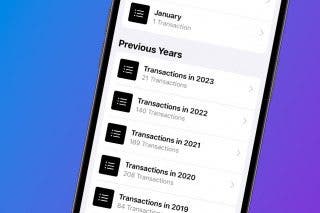
 Rhett Intriago
Rhett Intriago
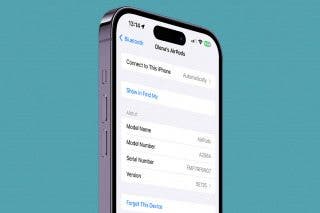
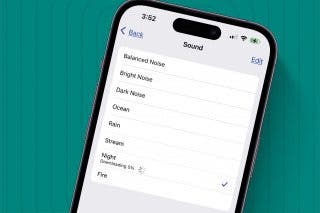

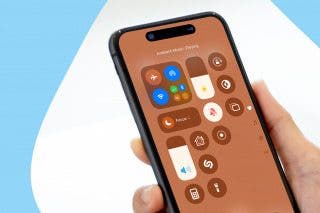
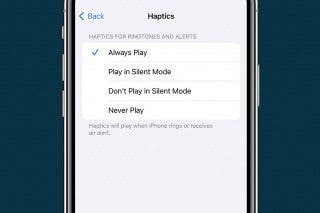
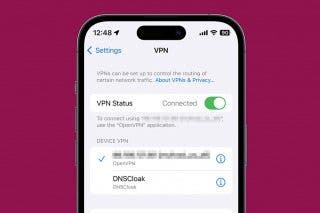



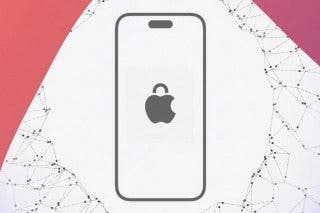
 Cullen Thomas
Cullen Thomas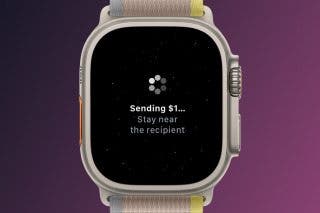

 Rachel Needell
Rachel Needell